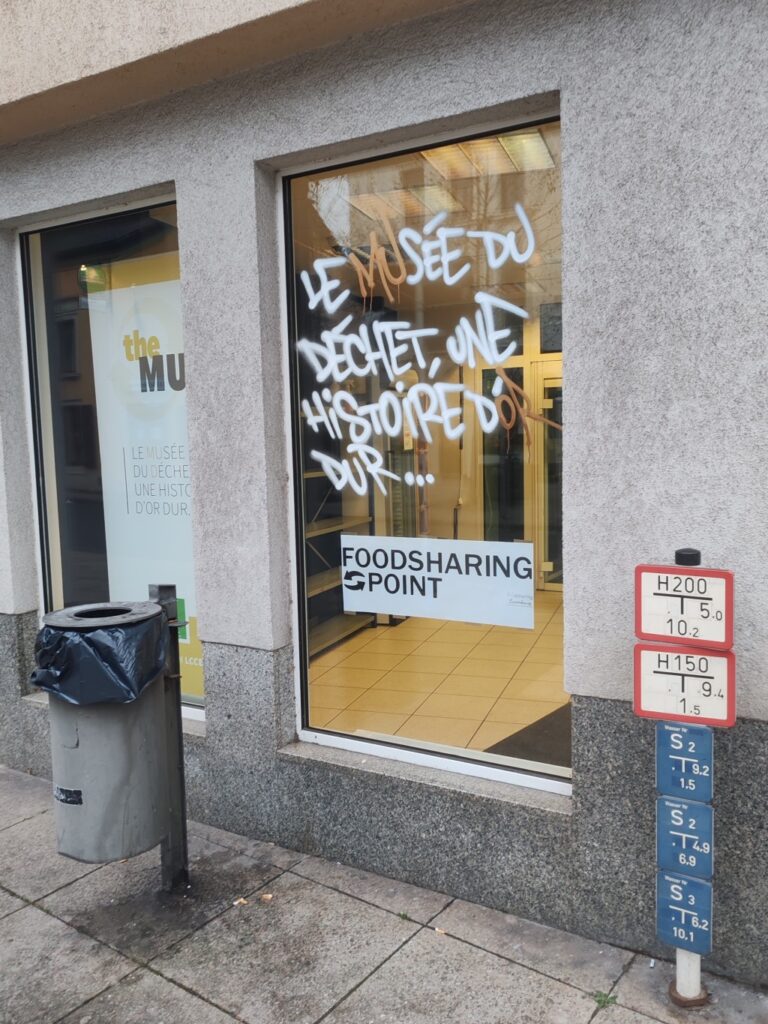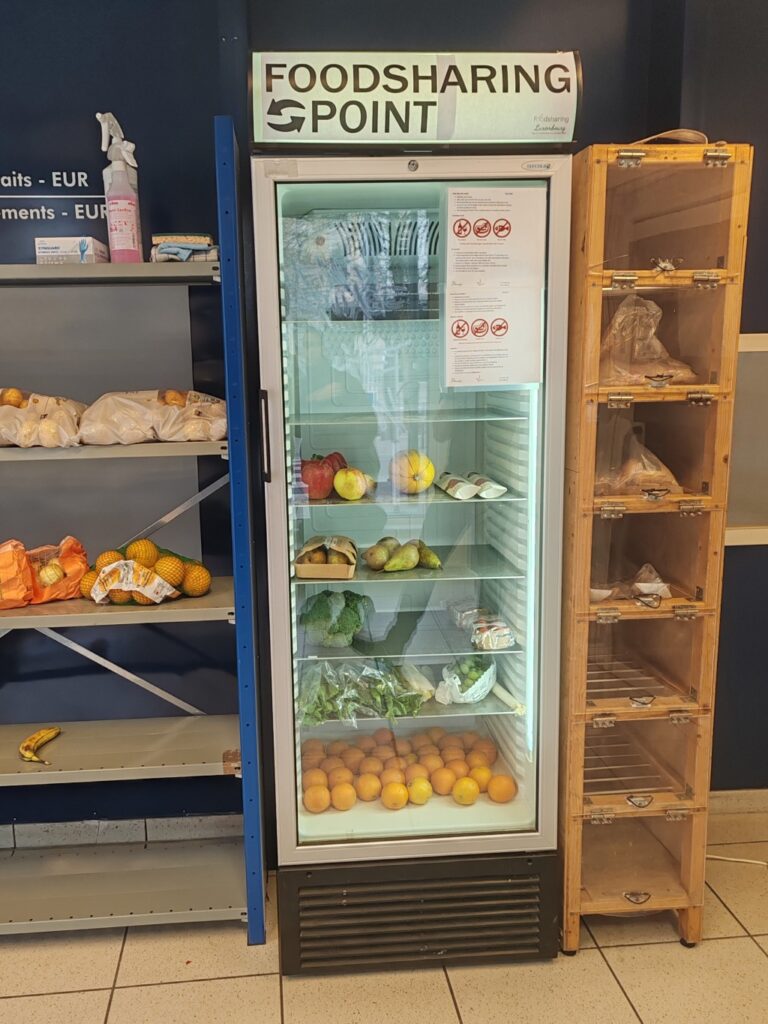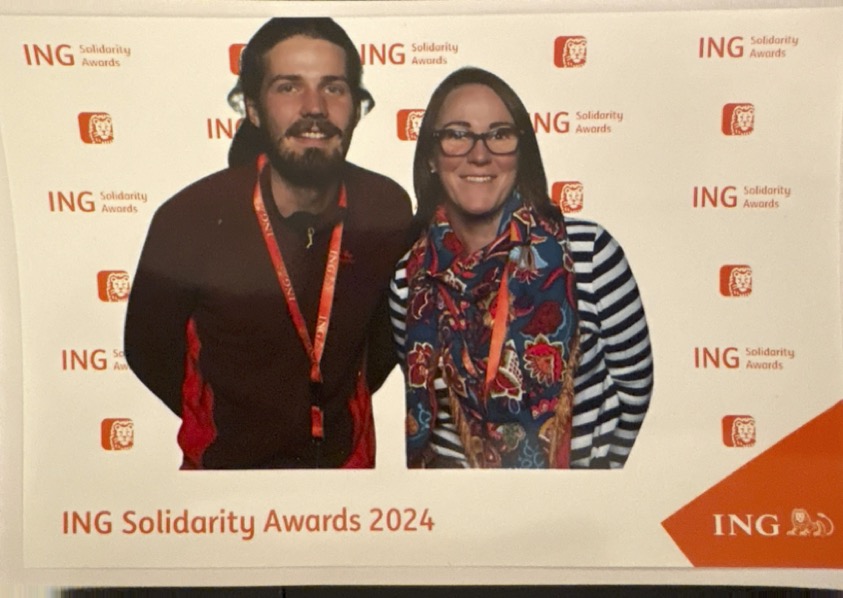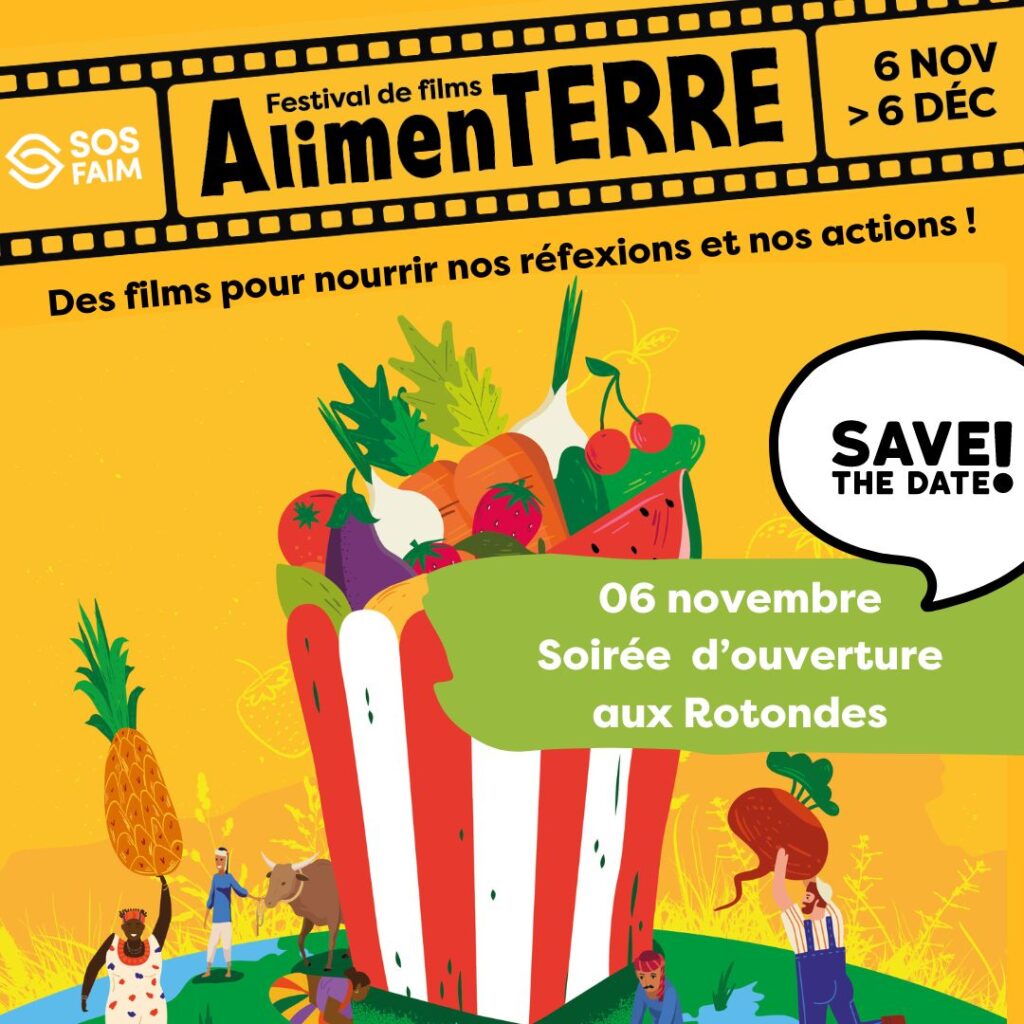Feedback EU published a statement today calling the EU for setting its targets for manufacturing and processing food waste reduction to at least 20%. We fully support this demand.
News
Foodsharing Point opened in Differdange
A new Foodsharing Point was opened today at the “Musée du Déchet”, 54 rue J.-F.-Kennedy , Differdange. It is accessible every day from 8:00 to 21:00. More details can be found on our Foodsharing Points page.


External links
Foodsharing Luxembourg Celebrates 5 Years of Fighting Food Waste
In the second half of 2024, Foodsharing Luxembourg proudly celebrated its 5th anniversary, marking a significant milestone in the mission of the association to reduce food loss and waste. What began as a small group of friends meeting in December 2018 to brainstorm ideas has now grown into a vibrant, volunteer-driven movement with 825 members.
Founded in August 2019 with just seven members, the association quickly gained traction and established itself as a key player in the fight against food loss and waste in Luxembourg. Since its inception, Foodsharing Luxembourg has successfully implemented various initiatives, including the highly effective Foodsaving and Foodsharing Points projects. These initiatives have proven to be a success, despite initial skepticism and challenges, helping to redistribute more than 923 tonnes of food.
“We are incredibly grateful to all our active members, as well as the brilliant shops, partners, and funders who have supported us over the past five years,” said Daniel Waxweiler, co-founder. “Our growth and success would not have been possible without their dedication and commitment to our mission.”
To mark the occasion, Foodsharing Luxembourg hosted a celebration event in September 2024 at Batiment IV in Esch-Alzette, where members gathered to celebrate the milestone. The event featured workshops, lively discussions, music, and, of course, cooking with food leftovers – all reflecting the core values of sustainability and community that have defined the organisation since its founding.
The future: a national strategy against food waste
According to Eurostat 147 kg of food is wasted per person per year in Luxembourg [1]. Foodsharing Luxembourg believes that our responsibility to combat food waste extends beyond just reducing immediate waste – it’s about preserving resources for future generations.
As the organisation looks ahead, Foodsharing Luxembourg continues to push for greater change on a national level. “While we’re proud of our achievements, we remain committed to advocating for a national strategy and legislation against food loss and waste,” said Hannah Proffitt-Perchard, Communication circle Representative. “Our biggest wish for our 5th anniversary is to see the government take more decisive action in addressing food loss and waste, which remains a significant issue both locally and globally.”
Minimise food waste during the holiday season
The end-of-year celebrations often bring large quantities of food, whether at family gatherings, company parties, or festive events. To help reduce waste, plan ahead by having plenty of containers on hand to store leftovers. Encourage guests to take some home, ensuring that nothing goes to waste. Small actions like this can make a big difference in minimising food waste during the holiday season.
[1] https://ec.europa.eu/eurostat/en/web/products-eurostat-news/-/ddn-20220925-2
Foodsharing Luxembourg a.s.b.l. at the ING Luxembourg Solidarity Awards 2024!
Although we didn’t win this year, we are incredibly grateful to participate in the ING Solidarity Awards 2024 ceremony!
Our team members, Martin Lecoutère and Hannah Proffitt-Perchard, had the opportunity to attend the event, discover and connect with many inspiring ASBLs (non-profit organisations) across Luxembourg. It was truly motivating to see the incredible work being done by other organisations committed to making a difference. 💚
Congratulations to all the winners and a special mention to Fondation Lëtzbuerger Kannerduerf who this year won the Environmental Protection category. 🌱
A special shout-out to on.perfekt and Kass-Haff, who last year won in the Environmental Protection category. Their initiatives continue to inspire us, and we’re excited to see how all of us can contribute to a more ecological and more sustainable Luxembourg.
A big thank you to ING Luxembourg for bringing us all together in the spirit of collaboration and solidarity. It’s events like these that help strengthen the network of organisations working for social and environmental good in Luxembourg, and we’re proud to be part of that movement.
Let’s continue to learn from each other, share ideas, and work together towards a more sustainable and environmentally conscious future!

Article updated in Luxembourg Times
Luxembourg Times published their revised article about what you can do in Luxembourg to reduce food loss and waste, and we are listed as one initiative.
100,7: “Revisioun vun de politesche Fuerderunge vu Foodsharing Luxembourg”
Foodsharing Luxembourg published a first version of its political demands in February 2023 and presented them before the elections to politicians: Minister: sent in.
In the meantime, more European countries have introduced laws against food waste, and Foodsharing Luxembourg organized a panel discussion with experts and politicians on the subject a year ago. Explanations with Daniel Waxweiler from Foodsharing Luxembourg.
Listen to the interview at 100,7 (in Luxembourgish)
Festival AlimenTERRE coming up

SOS Faim is organising the first edition of the film festival AlimenTERRE from the 6th November to the 6th December. Five documentaries about crucial issues around food and agriculture will be shown. More details can be found on the official website and in the Facebook event.
Foodsharing Luxembourg is supporting this festival as communication partner.
All You Can Eat interview available online
The interview with Daniel realised in 2023 for the exhibition All You Can Eat, which took place from the 6th October 2023 until the 14th July 2024 in the Lëtzebuerg City Museum is now available on YouTube.
Festival des Citoyen.ne.s en Transition
Foodsharing Luxembourg had a disco soup with Casa Lallange, CCC Zero Waste and CIGL on the Festival des Citoyen.ne.s en Transition on the 29th June 2024. Some photos can be found in the latest newsletter of Transition Minett.
Foodsharing Point Bonnevoie is closed
Due to continuous vandalism we were forced to close the Foodsharing Point in Bonnevoie on the 5th August 2024.
A big thanks to all the volunteers for having checked and cleaned it regularly and to Chambre des Salariés for having offered us this place!
You can use our other Foodsharing Points.
